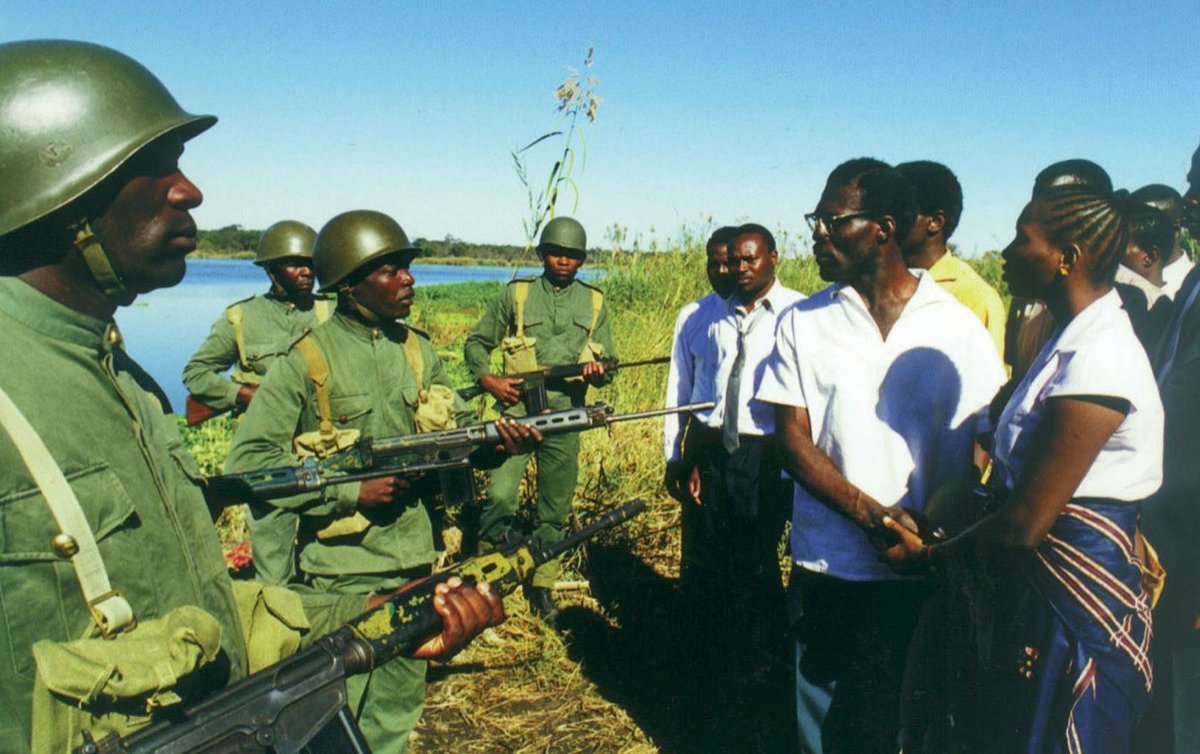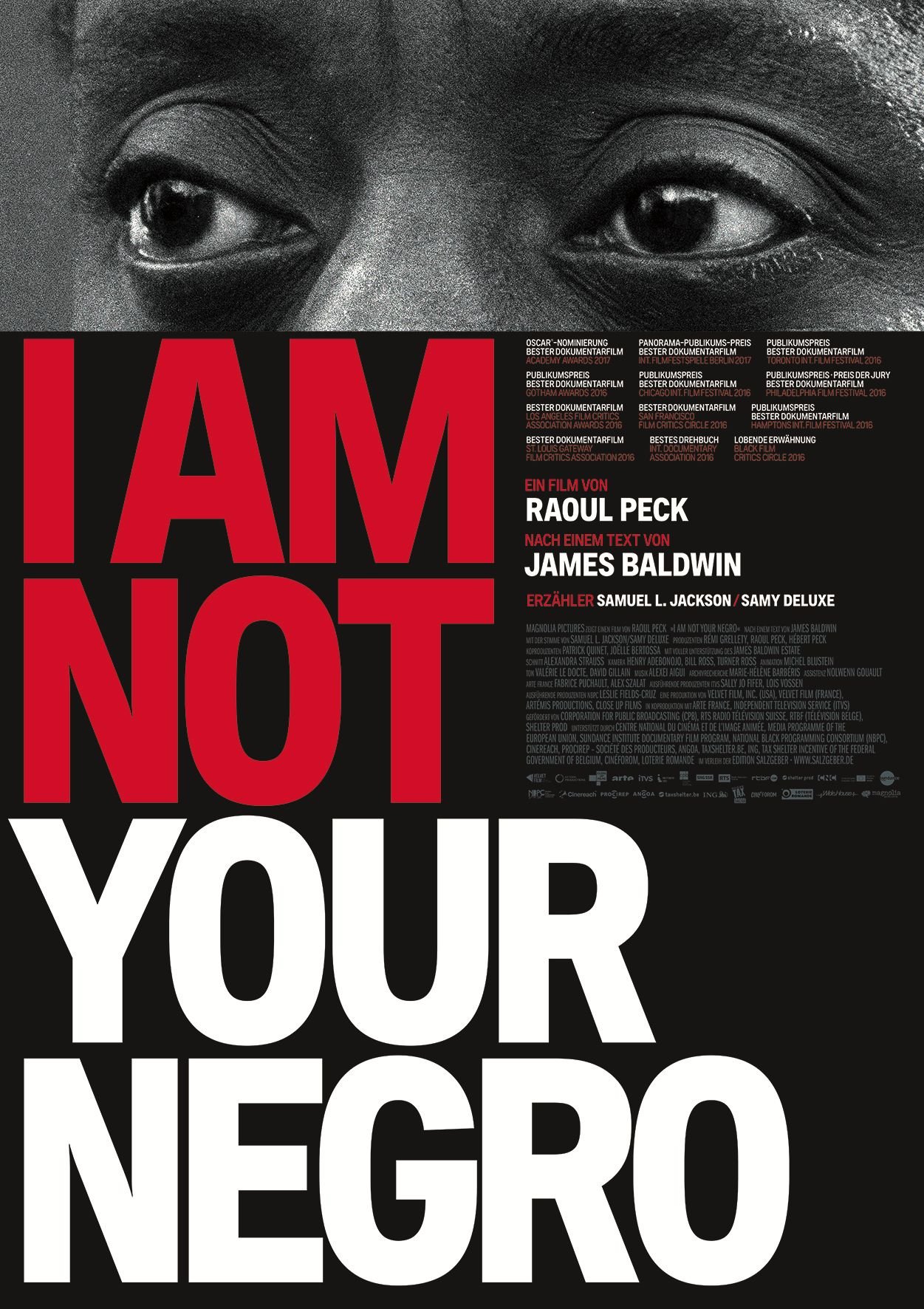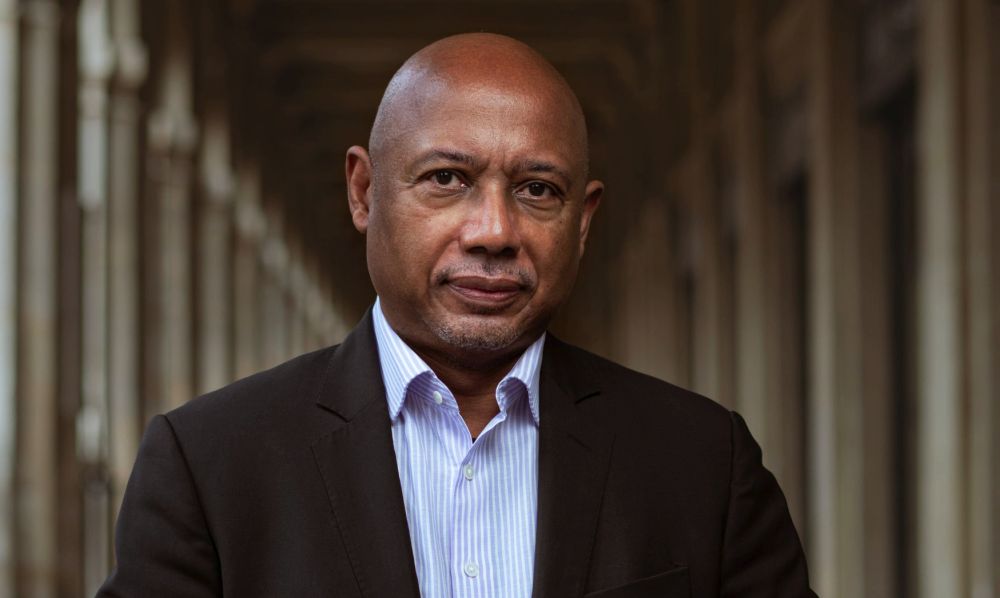"In a world where so much is pre-packaged for us, Peck’s work is refreshingly unpredictable. As viewers, it’s always exciting to anticipate seeing his new films because we never know where Peck will situate us in the story, nor how we’ll be asked to interact with its broader history. That sense of excitement is invaluable as we contemplate the documentary landscape today—especially as we hope to inspire new filmmakers to study the great works of non-fiction cinema, urge them to pick up a camera, and encourage them to channel Peck’s brand of determination when they tell their own stories." - Hussain Currimbhoy (Hot Docs, 2024)
Raoul Peck
Director / Screenwriter / Producer / Editor
(1953- ) Born September 9, Port-au-Prince, Haiti
(1953- ) Born September 9, Port-au-Prince, Haiti
Key Production Country: France, Haiti, USA, Belgium, Germany
Key Genres: History, Documentary, Biography, Drama, War, Culture & Society
Key Collaborators: Alexei Aigui (Composer), Pascal Bonitzer (Screenwriter), Rémi Grellety (Producer), Jacques Bidou (Producer), Kolja Brandt (Cinematographer), Jacques Comets (Editor), Alexandra Strauss (Editor)
Key Genres: History, Documentary, Biography, Drama, War, Culture & Society
Key Collaborators: Alexei Aigui (Composer), Pascal Bonitzer (Screenwriter), Rémi Grellety (Producer), Jacques Bidou (Producer), Kolja Brandt (Cinematographer), Jacques Comets (Editor), Alexandra Strauss (Editor)
"Peck is a former minister of culture in Haiti who has lived in West Berlin, Paris and the US, describing his experience as a life in exile. His films going back 40 years are often drawn to people whose relationship to their homes are tenuous, uncertain or altogether severed, whether politically or violently. His first narrative feature, 2000’s Lumumba, focused on the executed Congo leader’s rise and fall… His HBO series Exterminate All the Brutes, examines genocide as a pillar of the European and US cultures, wiping Indigenous, African and Jewish people from their homes" - Radheyan Simonpillai (The Guardian, 2024)
"Born in Haiti, Peck spent most of his childhood in the Democratic Republic of Congo and eventually spent a stint as Haitian Minister of Culture before turning to film. Much of his sharp, socially focussed work explores the legacy of colonialism, race and class, with subjects from James Baldwin to Karl Marx. He has spoken at length about preserving and illuminating the stories and legacies of those often precluded from popular cultural narratives, and has become a driving force in the cinematic chronicling of African diaspora and histories in particular." - BFI

Lumumba (2000)
"Raoul Peck is a filmmaker of both feature and documentary films. In 1988, he graduated from the film academy of West Berlin. Since then, he has directed and produced several documentaries, feature films, and TV series in various countries. He was Haiti’s Minister of Culture from 1996 to 1997 and has been the president of the French film school La Fémis since 2010. He uses historical, political, and personal characters to tackle and recount societal issues and historical events in his works, which have been nominated for and awarded with various awards internationally." - IFFR
"Raoul Peck‘s life is as fascinating as his films, filled with unexpected twists and turns. From his early stints as a cab driver and journalist, to a minister of culture post in his native Haiti, to teaching, to founding his Velvet Film production shingle to his breakthrough when he earned an Oscar nomination as producer/director with the James Baldwin doc, I Am Not Your Negro, the common denominator is Peck’s drive to make life better through his work. “I went into film because there were things I wanted to say, to express or deconstruct,” he explained. “And there is a fight to be had about the state of the world and wherever I’m living.”" - Gregg Goldstein (Variety, 2024)
"All of director Raoul Peck’s films—from the late 1980s onwards—have been about different forms of colonialism around the world, but he remains rooted in his native Haiti. His two first narrative features, Haitian Corner (1988) and Man on the Shore (1993), take place there, and he has said that his Third World consciousness would prevent him from ever making a film that he would be ashamed to show in Haiti. “[We] are not free. We are bound,” he once told an interviewer, declaring that our own families and peoples must be the ground from which we set out to explore the struggles of others." - Cosmo Bjorkenheim (Screen Slate, 2017)
"Not since Arnold Antonin has a filmmaker brought Haitian cinema to the world stage like this former minister of culture, as accomplished a director of fiction as he is documentaries." - MUBI
"I don’t go about my work looking for what is the right moment. On the contrary, my work is always from a very organic point of view. I just follow the vibes around me. There is a limited amount of film that I probably will be able to make. I do make sure that my films will survive the test of time. And to be frank with you, I don’t really care if the film is well received or not right now. It’s about, will it be possible for young people in 30 years, 40 years to find that film? They can find some materials to use for their own fight." - Raoul Peck (The Guardian, 2021)
Selected Filmography
{{row.titlelong}}
Raoul Peck / Favourite Films
The Assault of the Present on the Rest of Time (1985) Alexander Kluge, Camera Buff (1979) Krzysztof Kieslowski, Une Chambre en ville (1982) Jacques Demy, Contempt (1963) Jean-Luc Godard, The Firemen's Ball (1967) Milos Forman, Husbands (1970) John Cassavetes, Killer of Sheep (1977) Charles Burnett, The Passenger (1975) Michelangelo Antonioni, Sans soleil (1983) Chris Marker, Stalker (1979) Andrei Tarkovsky.
Source: Sight & Sound (1992)
The Assault of the Present on the Rest of Time (1985) Alexander Kluge, Camera Buff (1979) Krzysztof Kieslowski, Une Chambre en ville (1982) Jacques Demy, Contempt (1963) Jean-Luc Godard, The Firemen's Ball (1967) Milos Forman, Husbands (1970) John Cassavetes, Killer of Sheep (1977) Charles Burnett, The Passenger (1975) Michelangelo Antonioni, Sans soleil (1983) Chris Marker, Stalker (1979) Andrei Tarkovsky.
Source: Sight & Sound (1992)
"Fan Club"
These film critics/filmmakers have, on multiple occasions, selected this director’s work within film ballots/lists that they have submitted.
These film critics/filmmakers have, on multiple occasions, selected this director’s work within film ballots/lists that they have submitted.


